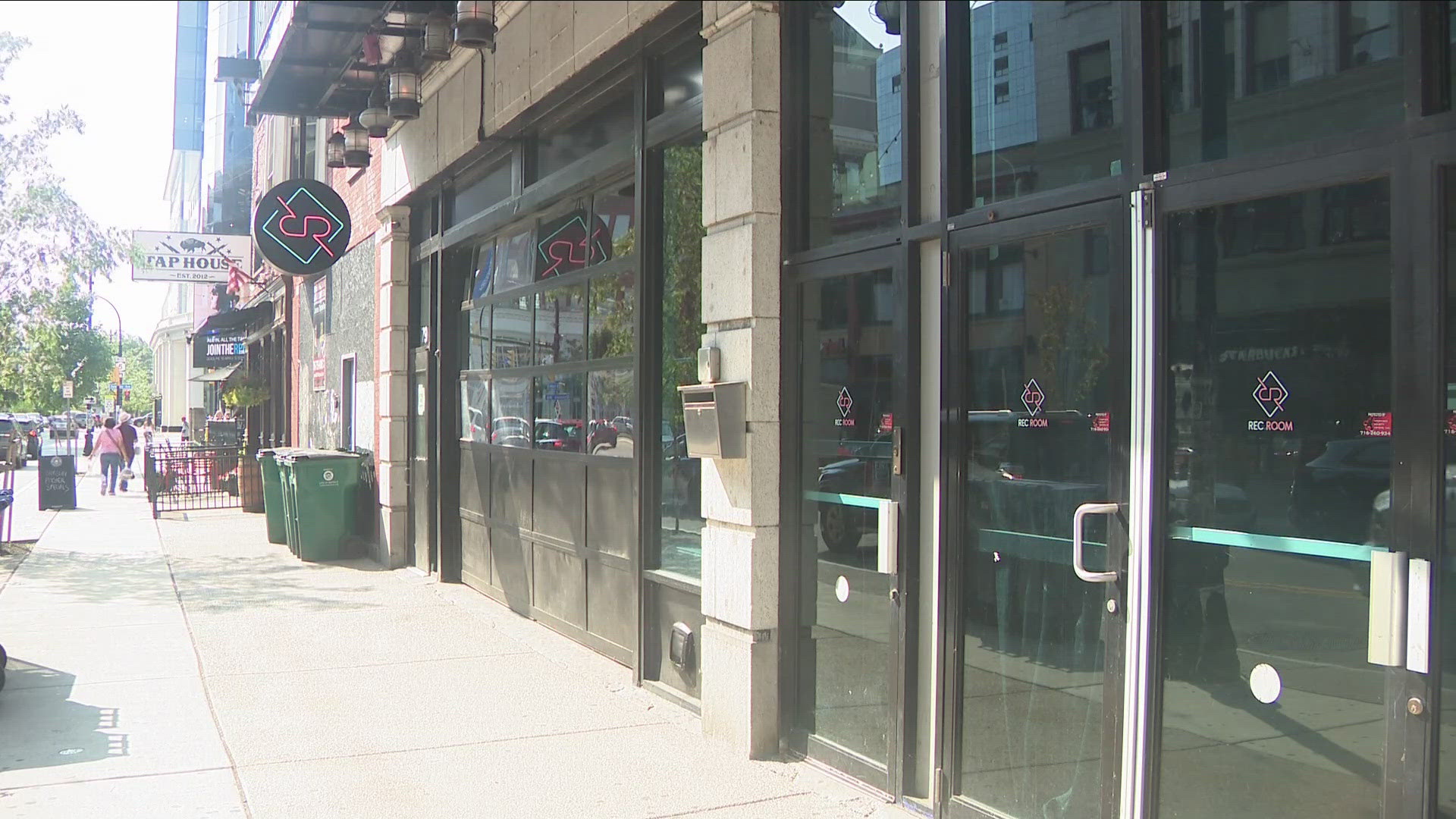BUFFALO, N.Y. — Many of the music venues in the City of Buffalo received an alarming letter from the city in recent days: Pay an amusement license fee or they would be fined.
What exactly is an "amusement license" fee? That depends on who you ask.
"It's not a licensing fee, it's a tax," Josh Mullin said. "It's crazy."
Mullin owns Jack Rabbit on Elmwood Avenue, as well as Riff City and Sol Pool Club. According to the letter, he would have to pay upwards of $25,000 for an amusement license.
"You can't send a notice to a small business owner saying this is going to cost you $25,000 a year in the mail," Mullin said. "This is a bigger discussion than that."
The letter states that venue owners have to apply for an amusement license for every event they hold, and the license fee cost is based on the ticket price for the event.
According to the letter:
- $1-$25 ticket for an event = $55 license fee.
- $26-$50 ticket for an event = $85 license fee.
- $51-$75 ticket for an event = $115 license fee.
- $76-$100 ticket for an event = $225 license fee.
- Over $100 ticket for an event = $350 license fee.
In a statement to 2 On Your Side, a spokesperson for the city said:
"Amusement Licenses for live performances have been an ongoing requirement in the City which venues pay for on a regular basis. Some venues have not been getting their Amusement Licenses and still need to be licensed. As a reminder, notices were sent to performance spaces in the City to provide information on applications for licensing their events or overall program."
But venue owners, some with decades of experience running events in Buffalo, tell 2 On Your Side that they've never heard of this fee and have never experienced enforcement of it.
"This was a totally out of thin air, and really took us by surprise," said Chris Ring, owner of Rec Room on Chippewa Street.
Ring said if the fees are imposed on his club, it would be an additional $10,000 to $15,000 in expenses for his venue.
"We already pay for six or seven different permits to operate right now," Ring said.
The city is facing a budget deficit in the tens of millions of dollars, potentially, next year. Ring and other venue owners believe this is an attempt to quickly fill the city coffers so that budget gap isn't as gaping.
"I'd like to hope they're not going towards small business owners to kind of make up the deficit," Ring said. "But when you send out a thing like that out of nowhere to venues that you did, kind of demanding that money, it just seemed like there's a different angle."
City lawmakers were also caught off guard with news of the letters.
North District Councilman Joseph Golombek Jr. said he wasn't aware of such a license fee.
"I still don't have a complete good answer for what exactly is going on," Golombek said. "But I do know that myself and most of my colleagues, at least the ones that I spoke to, were very concerned about this."
It's unclear, right now, if anyone is actually paying this fee, or how much has been collected by the city because of the fee.
"Whether this has been on the books or not in the past, if we've not been collecting its shame on us, and we could have fixed it in the past if it was too high."
It's also not clear, how and why the city is only now reminding venues about the amusement license fee.
Late Wednesday, however, it appeared that the city changed its tune.
According to Mullin and Ring, they've been told by the Dept. of Permits & Inspections that there will now be a flat rate paid yearly by venues to the city, and that the letter was, seemingly, a clerical error.
"Moving forward, come 2025, applications that are in the music industry will have to apply for this permit X amount of dollars a year," Ring said.
Owners are now hoping for better communication with the city about these types of issues, rather than receiving letters demanding money and threatening fines.
"I spoke to some other people that I haven't dealt with in the past, so we now know who to talk to when we have issues like this," Mullin said. "But the communication needs to be better."
Related Video:

